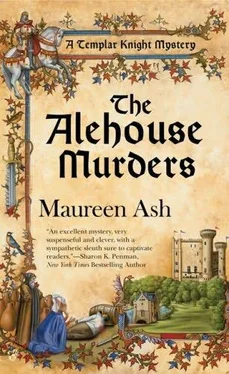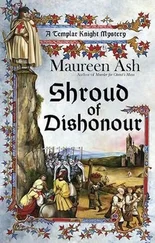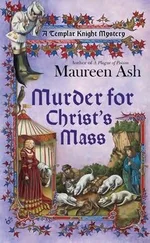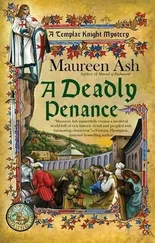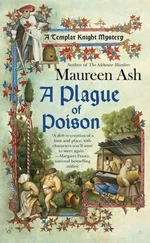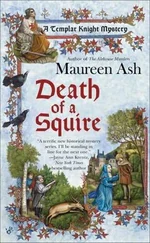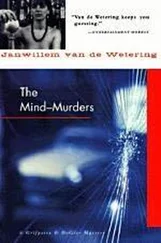Maureen Ash - The Alehouse Murders
Здесь есть возможность читать онлайн «Maureen Ash - The Alehouse Murders» весь текст электронной книги совершенно бесплатно (целиком полную версию без сокращений). В некоторых случаях можно слушать аудио, скачать через торрент в формате fb2 и присутствует краткое содержание. Жанр: Исторический детектив, на английском языке. Описание произведения, (предисловие) а так же отзывы посетителей доступны на портале библиотеки ЛибКат.
- Название:The Alehouse Murders
- Автор:
- Жанр:
- Год:неизвестен
- ISBN:нет данных
- Рейтинг книги:4 / 5. Голосов: 1
-
Избранное:Добавить в избранное
- Отзывы:
-
Ваша оценка:
- 80
- 1
- 2
- 3
- 4
- 5
The Alehouse Murders: краткое содержание, описание и аннотация
Предлагаем к чтению аннотацию, описание, краткое содержание или предисловие (зависит от того, что написал сам автор книги «The Alehouse Murders»). Если вы не нашли необходимую информацию о книге — напишите в комментариях, мы постараемся отыскать её.
The Alehouse Murders — читать онлайн бесплатно полную книгу (весь текст) целиком
Ниже представлен текст книги, разбитый по страницам. Система сохранения места последней прочитанной страницы, позволяет с удобством читать онлайн бесплатно книгу «The Alehouse Murders», без необходимости каждый раз заново искать на чём Вы остановились. Поставьте закладку, и сможете в любой момент перейти на страницу, на которой закончили чтение.
Интервал:
Закладка:
D’Arderon had left Bascot to go in search of a cup of ale to slake his thirst when Ernulf had joined the Templar, Gianni trailing behind him.
“I’ve told Lady Nicolaa and the sheriff what happened in the chapel last night. And Lady Hilde, too. She had not yet been abed, but was sitting up waiting for news of how you fared. She said to tell you that your task was well done, and she would have speech with you later.”
Bascot acknowledged the words, but was looking at Gianni. The boy was strangely subdued, staying near Ernulf and looking at his master with watchful eyes. Last night Bascot had only told the boy he had Templar business with d’Arderon, and that Gianni was to keep Hilde company for the night. The lad must have discovered where Bascot had really been from the speech of the adults around him, but instead of being relieved to see his master whole and sound, he seemed distrustful and suspicious of Bascot. The Templar sighed inwardly. Gianni was a child yet and, to his mind, his protector had lied to him. The boy saw it as a breach of trust between them.
Twenty-seven
The tourney was to take place on a broad stretch of level ground outside the castle walls to the northwest. It was the place where, nearly sixty years before, King Stephen had defended his right to the crown of England against King Henry I’s daughter, the Empress Matilda. Bascot arrived just before Sext, in company with d’Arderon and two other knights of the Temple. There was a huge crowd gathered to watch the spectacle, many already seated under the trees that bordered the river on the far side, eating food they had brought with them and drinking from flasks of ale or wine.
There was a good host of knights entered in the tourney, which was comprised of only one event, the melee, a mock battle between two opposing teams of knights. Although the entrance fee was steep, the purse for the winning side was a large one, and contestants had arrived not only from the area surrounding Lincoln, but from as far afield as London and York. The merchants of Lincoln had donated a bolt of cloth and a new saddle to be awarded to the knight declared champion of the tourney. These prizes were well worth fighting for, as was the ransom that a knight would collect from any opponent he unhorsed. Many a contestant would go home the poorer, not only for the loss of his entrance fee, but also his destrier and arms, given in pledge until he should pay the silver he owed to the knight who had captured him.
Since the fighting of the melee was frowned upon by the church, King John, when granting the licence to hold it, had made certain stipulations. The tourney was to be kept within a confined area so that neighbouring farms and fields would not have their crops destroyed by the hooves of the war horses, and any knight deliberately wreaking harm on an opponent that was already unseated was to be fined and disqualified.
Bascot’s task, and that of the other Templars, was simple. First they were to oversee the drawing of the lots that would determine on which side the contesting knights would fight. Then, when the two teams were drawn up on each side of the meadow, they were to give the signal for the tourney to begin. Once the battle was underway, they had only to decide which knight, in their opinion, fought with enough valour to be declared champion. Since the team that would be adjudged the winner was the side that had the most combatants remaining at the end of two hours, the champion could be chosen from either side, whether that of the victorious or the defeated.
Bascot went to join the crowd around the large canopied stand that had been erected on the eastern side of the field. In it would sit Nicolaa and her husband, along with some of their guests. The common people would spread themselves along the perimeters of the meadow, fending for themselves as best they could if the mock battle came too near. A festive atmosphere lay over the whole event as well as an air of eager anticipation. Tents had been erected on the surrounding hillside for the use of the combatants and among these strolled minstrels, vendors of food and wine, and hawkers of everything from ribbons to horseflesh. The buzz of conversation, the strains of music from the troubadours’ instruments, the neighing of the horses and the clang of metal was a din that floated heavenward into the balmy summer air. On the surface of the meadow the daisy-starred grass rippled in a slight breeze, its beauty soon to be trampled into oblivion.
As the sun neared its zenith and the time for the commencement of the tourney approached, the crowd became silent. Nearly one hundred combatants paraded before the stand and received a ribbon-either green or yellow-that would be tied to their arms to identify on which side they belonged. Bascot and the other Templars sat on their horses overseeing the affair, all clad in surcoats of white. Most of the contestants were young, with only one or two older knights, battle scarred and grim, among them. Richard Camville rode past, mounted on a magnificent roan, and received from his mother’s hand a ribbon of green. On his shield the Camville silver lion quartered with the Haye twelve-pointed red star glittered as the sun struck it. Conal was close behind him, and given a strip of ribbon that was the same colour. In the stand, beside Nicolaa, sat Hilde, her face alight with joy as she watched her great-nephew, resplendent in chain mail and a surcoat of blue embroidered with a black raven, adjust his helm and take his place next to Richard at the south end of the field.
Beside Hilde was a golden-haired girl with a rosebud mouth, a light veil of gauze shielding her features. Bascot had seen Conal lift the young woman out of an enclosed litter a short time earlier, then carry her and seat her tenderly beside his great-aunt. Bascot supposed the girl must be the goldsmith’s daughter, removed from the aura of secrecy in which her father had kept her and openly declared by Conal as the woman he loved. Hilde had welcomed her warmly, smiling and taking the girl’s hand in her own before looking around defiantly to see if any of her neighbours should dare seem critical of her approval. Conal’s mother, Sybil, and her two brothers, Magnus and Ailwin, were noticeable by their absence.
On the other side of Hilde was Gianni, the elderly lady’s hand resting familiarly on the boy’s shoulder as he clutched her silver-headed cane close in his arms. It pleased Bascot to see his servant thus, but he felt a strange sense of loss. It was as though the boy had deserted him.
Roger de Kyme came next in the parade of entrants. He was riding a black stallion with thick hindquarters. The animal was nervous and snorted at the close proximity of the crowd, ears twitching. Behind Roger rode his cousin, Alan, mounted on a wiry grey with a small head and alert eyes. Ivo de Rollos was there, too, watching with anxious eyes as his mother, Ermingard, handed him a ribbon with an air of puzzlement about what she was doing. All three received ribbons of yellow. It took nearly an hour for the rest to pass by and receive an identifying scrap of material.
During this time Bascot let his gaze roam over the crowd. It was a motley company, merchant alongside tinker, and prostitute standing cheek by jowl with clerk. He spotted Agnes, the alewife, in the crowd, her face white and subdued as she stood with her sister and family. Agnes had been released from gaol only that morning, Isobel’s confessed guilt the alewife’s warrant to freedom.
Nearby, and a small distance apart from the others, were Isaac and his brother Nathan. They were watching the line of combatants with hawk-eyed interest. There was no doubt that many of the entrants had borrowed the price of their fee from the moneylenders. The Jews would keep a sharp tally of who, among those pledged, emerged the victor or had the misfortune to be among the vanquished.
Читать дальшеИнтервал:
Закладка:
Похожие книги на «The Alehouse Murders»
Представляем Вашему вниманию похожие книги на «The Alehouse Murders» списком для выбора. Мы отобрали схожую по названию и смыслу литературу в надежде предоставить читателям больше вариантов отыскать новые, интересные, ещё непрочитанные произведения.
Обсуждение, отзывы о книге «The Alehouse Murders» и просто собственные мнения читателей. Оставьте ваши комментарии, напишите, что Вы думаете о произведении, его смысле или главных героях. Укажите что конкретно понравилось, а что нет, и почему Вы так считаете.
